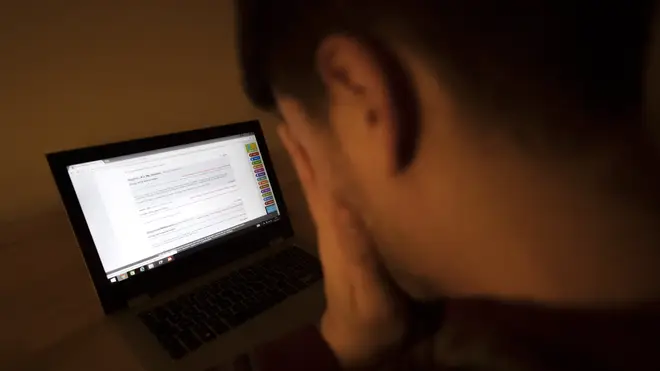
James O'Brien 10am - 1pm
23 June 2021, 10:34

Facebook and Instagram must do more to combat online dangers facing children, Molly Russell’s father has said.
Social media platforms must stop making excuses and start taking more steps to combat harmful content on their services, online safety campaigner Ian Russell has said.
Mr Russell, whose daughter Molly took her own life in 2017 after viewing harmful content on social media, said the likes of Facebook and Instagram had a responsibility to tackle online harms rather than waiting for government regulation.
Speaking to BBC Breakfast as part of a new online safety awareness campaign he is backing, Mr Russell criticised platforms such as Facebook and Instagram, which have argued that while they have increased staff numbers working in safety and security in recent years, they need more Government regulation so they do not have to make content decisions alone.
“Why can’t companies and corporations make those sorts of decisions, which can threaten people’s lives, by themselves? Of course Government should help them – people should be joined up – but I think that’s not a reasonable enough excuse,” he said.
“Everyone, from governments to companies to individuals, should be taking responsibility for being safe online and thinking about the future world and making sure that these online platforms – which can do good things – continue to do that and they’re not spoiled by the bad and harmful content that’s on them.”
He said he believed some progress had been made around children’s online safety but added it had been made “at a snail’s pace”.
Mr Russell was speaking alongside campaign group the 5Rights Foundation as it launched a collection of mock toys which mimic online abuse and the data collection activities of some digital services in an effort to highlight how certain behaviours permitted online would never be tolerated in the real world.
The Twisted Toys collection includes a Share Bear which gathers and shares a child’s data and a Pocket Troll which scrutinises every moment of a child’s day and bombards them with unkind comments.
The mock range also includes a storybook of terms and conditions that would take hundreds of hours to read and a “stalkie talkie” which allows strangers to interact with children.
In response to the growing threat, the Government published its proposed Online Safety Bill earlier this year, which would introduce a new duty of care for online platforms and place them within the scope of Ofcom in its new role as an online regulator.
Speaking alongside Mr Russell, 5Rights chair Baroness Beeban Kidron said she was “hugely optimistic” about the Government’s forthcoming Online Safety Bill, but said it had taken too long to introduce.
“It’s four years we’ve been waiting for it and it will be two or three years until it takes effect, and in a child’s life seven years is a very long time,” she told BBC Breakfast.
She also criticised social media platforms over their response to harmful content and said better precautions needed to be built into their services.
“I don’t accept what the platforms are saying, they should be safe by design and default, no other sector gets away with actually giving consumer-facing goods, especially to children, that do not have health and safety and consumer protections as a matter of course,” she said.
“We don’t accept it anywhere else and we mustn’t accept it online.”
Research from 5Rights, published alongside its Twisted Toys campaign, found that 80% of parents do not trust tech companies to protect children online, and 71% think the Government should be doing more around online safety.
Some 90% of parents surveyed also said they think the internet can be harmful to children.
“Too often, people forget that digital products and services are consumer goods – and as such they need to be safe for those who use them – especially children,” Baroness Kidron said of the campaign.
“We don’t share personal information about children with random strangers, we don’t allow strangers to knock on the door and ask for a naked Polaroid, we don’t allow people to assess their emotional state to sell them something. But all of this takes place online every day.
“Simply put, we do not accept this in the real world, and we must not allow it in the digital world.
“Twisted Toys shows just how dangerous and inappropriate data surveillance is, that terms and conditions are not fit for purpose, and that the tech sector is failing to offer even the most basic safety requirements. Parents want change.”